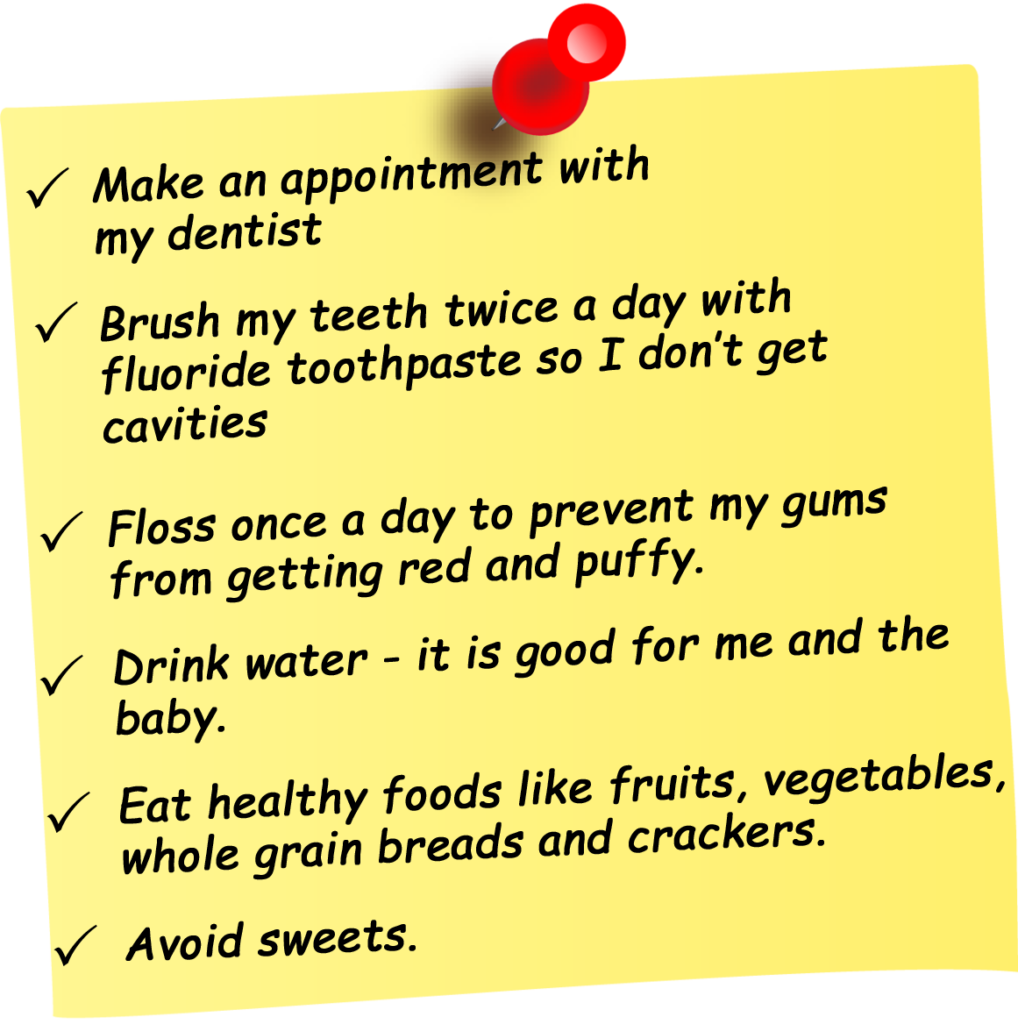Pregnancy hormones make women more likely to develop gum disease and cavities. According to the Centers for Disease Control and Prevention, 60 to 75% of pregnant women have gingivitis, an early stage of gum disease. Maintaining good oral health during pregnancy is important to both mother and newborn’s oral health.
During pregnancy the changes in your body may cause your gums to be sore, red, puffy and to bleed easily. Your teeth may get loose. Make an appointment to see a dentist.
Oral health care, including the use of X-ray, pain medication, and local anesthesia is safe throughout pregnancy. Tell the dental office staff that you are pregnant and your due date. This information will help them provide the best care for you
Good nutrition keeps your teeth and gums healthy and strong. Balanced meals containing calcium and limited excess acidity and sugar are best for you and your baby’s oral health. More frequent cleanings from the dentist also will help control plaque and prevent gingivitis. Sensitivity to hot and cold beverages and dental pain is not unusual during pregnancy. Your dentist can help.
Starting and maintaining good oral hygiene habits will help you keep your gums and teeth healthy during your pregnancy. Pregnancy is hard on your body. You may be tired and tempted to skip your healthy routine but don’t. Your oral health is important to you and your baby. Follow your healthy routine daily.
Morning sickness can do a number on your mouth.
Stomach acid can make its way into the mouth and can weaken your tooth enamel. What can you do?
| Wait about an hour before brushing your teeth because brushing right away can cause scratching and damage to your tooth enamel. | |
| Rinse your mouth with water. Water is a great way to help remove dangerous acids from the teeth and reduce the chance of decay. Tap water with a tiny bit of baking soda to reduce the acid level is best or you can use a mouthwash with fluoride. | |
| Smear a small amount of fluoride toothpaste on your teeth using your finger. Let the fluoride do its work to harden the tooth enamel. |
Download/View: suggestions on how to protect your teeth from morning sickness.
- Jump start your baby’s good oral health
Your baby’s teeth begin to develop as early as in your third month of pregnancy. Your baby will be born with 20 baby teeth (primary teeth) present in their jaw.
It is important that you have healthy teeth and gums before delivery, so that the germs that cause cavities do not get passed to your baby’s mouth.
| You can find a pediatric dentist in your area by using the American Academy of Pediatric Dentistry Dentist Locator Service. | |
| You can find a dentist for your whole family by using the American Dental Association Dentist Locator Service. | |
| Find a dentist for your baby who takes NH Medicaid on insurekidsnow.org. |
|
For More Information
Funding for this Tool Kit was provided by a grant from Northeast Delta Dental |



